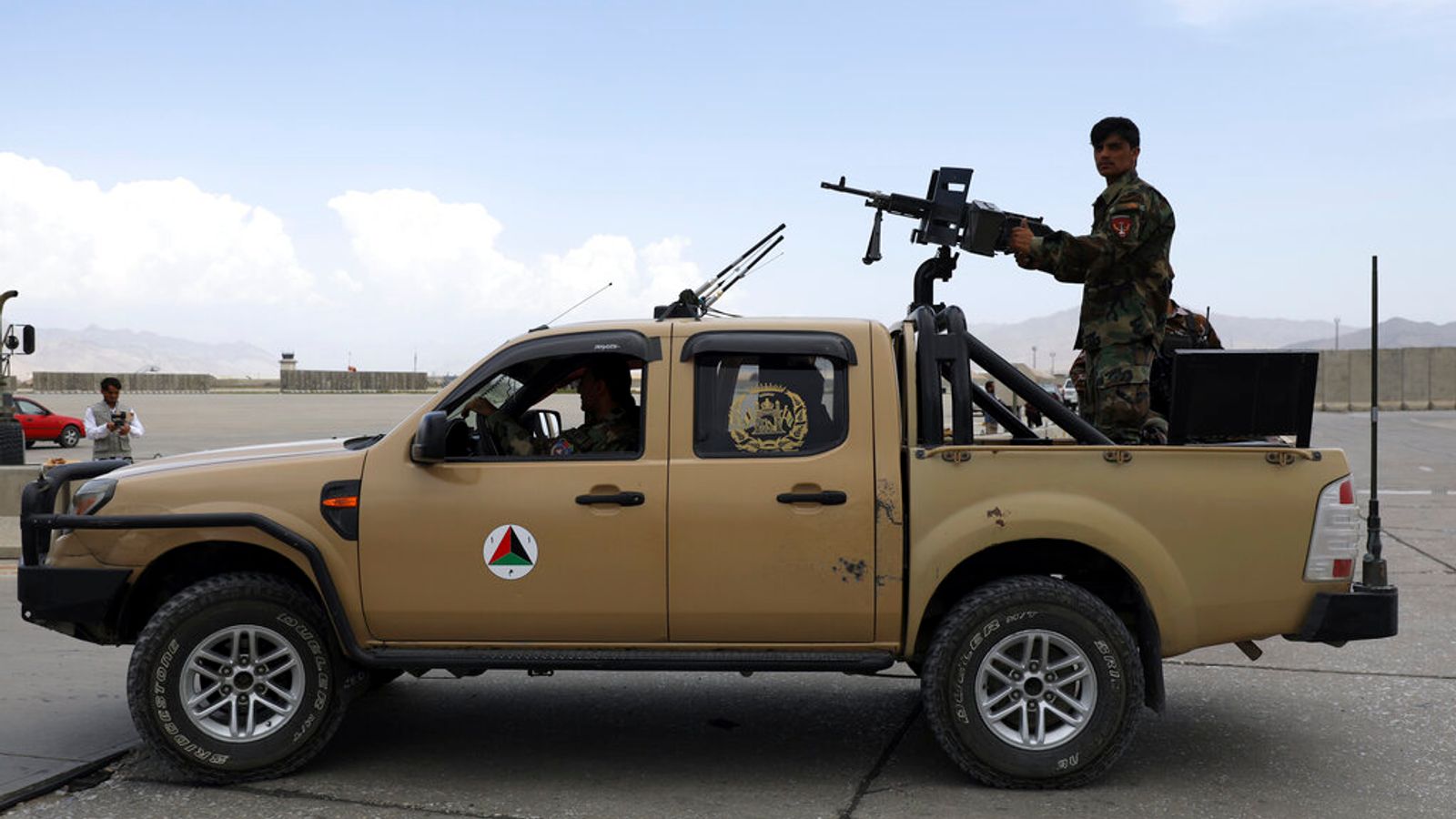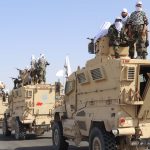Britain could launch airstrikes from outside Afghanistan against any future terrorist threats to the UK that emerge inside the country as troops withdraw, a defence minister has signalled.
James Heappey, the armed forces minister, drew on the example of how British warplanes fly from a base in Cyprus to attack Islamic State targets in Syria and Iraq when asked by an MP if the UK would similarly conduct military action in Afghanistan from a distance.
“We absolutely reserve the right to counter terrorist threats to the United Kingdom that may re-emerge in Afghanistan,” Mr Heappey said.
“And he is absolutely right to point us towards an ‘outside-in’ model such as that prosecuted from Cyprus in support of Operation Shader,” he said, referring to the counter-ISIS mission.
“I know that that is very much in the thoughts of those who are planning for that eventuality in Afghanistan.”
The comments came as the Taliban said it planned to present a written peace proposal to the UK and US-backed Afghan government side as soon as next month even as the militant group made major territorial gains across the country.
A security vacuum has grown since US President Joe Biden pledged to withdraw all US troops from Afghanistan by 11 September – the 20th anniversary of the al Qaeda terrorist attacks on the United States that triggered the US-led invasion in the first place.
The exit announcement was made despite a failure to secure peace in the country.
Please use Chrome browser for a more accessible video player
The US withdrawal has been relatively rapid, with the main US military base in Afghanistan handed over to the Afghan authorities last Friday without fanfare.
It means a hugely uncertain time for the Afghan police and army without their primary backers. In a sign of their nerves, more than 1,000 Afghan security force personnel fled into neighbouring Tajikistan on Sunday in the face of the Taliban advances.
Yet Taliban leaders renewed long-stalled talks with Afghan government envoys in Qatar’s capital Doha last week.
“The peace talks and process will be accelerated in the coming days… and they are expected to enter an important stage, naturally it will be about peace plans,” Taliban spokesperson Zabihullah Mujahid told Reuters on Monday.
Back in the UK’s House of Commons, Defence Secretary Ben Wallace was also asked about the UK’s nearly 20-year military campaign in Afghanistan, which is quietly drawing to a close alongside the US exit.
He said the US decision to pull its much larger force out of the country left the UK “in a very difficult position” and meant British troops were having to leave as well.
“We too are in that path of withdrawal with all the risks that that may leave for the future in the next 10 or 20 years,” he said.
The UK would continue to work with the Afghan government and “continue to focus on the threats that emanate from Afghanistan and that may grow to emanate towards the UK and our allies and we will do whatever we can”.
Boris Johnson is set to chair a National Security Council meeting on Monday in which decisions are expected to be made about the future UK footprint in Afghanistan.






















